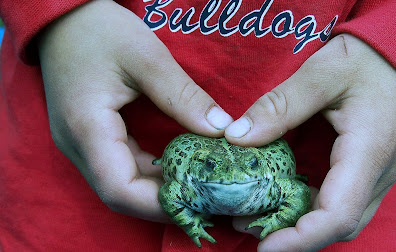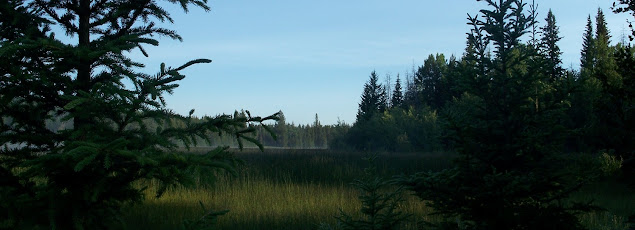We live in the bush and have created a garden that was unheard of in these parts. In fact, the old timers thought we were crazy. Cultivating wild flowers, greens and vegetables along with domestic greens and vegetables. Enriching the soil with what is around us. Doing it all by hand with the help from tools we've made. Simply. Leaving a light footprint.
We call it bushcraft gardening.
 |
| 150lbs of tomatoes |
We've learned about patience, stamina and how to relax here.
Fruit trees have been difficult but now we have a small orchard. Between moose, deer, bears, voles and mice it has been a challenge.
Honey bees have been emotionally draining because they die from causes we can't control but now they are thriving.
We now raise them in empty boxes, no frames, They build their own natural comb all the way down. We've combined a traditional Japanese method with Warre managment methods. No chemicals, no treatments.
Growing our own food has taught us in between frost, hail, bear, moose and deer, birds, rabbits, mice, voles, bugs, hillbilly pigs and the dreaded free range cattle to relax. The boreal forest is filled with animals that want almost everything that we grow.
This gardening method is sustainable, organic and has very little impact .
It's a state of mind going into the wilderness with nothing but seeds and a shovel, an open mind, relaxed and keenly observing your surroundings with a sense of freedom and balance.
 Everything around you may have a use for your bush garden. Rocks act like sinks storing heat energy from the sun that can offset cool nights. They are fertilizers slowly giving important nutrients to the soil. They collect and trap water. They can also be protection from animals and cover for others, like toads.
Everything around you may have a use for your bush garden. Rocks act like sinks storing heat energy from the sun that can offset cool nights. They are fertilizers slowly giving important nutrients to the soil. They collect and trap water. They can also be protection from animals and cover for others, like toads.That old stump – do I remove it, or can I plant a garden around it and let it slowly fertilize?
 |
| Rocks picked for a garden wall |
Harvesting what you need with care and never taking more than 1/3 of anything.
Surviving with respect and again, with a light foot step
Those “weeds” or wildflowers – pull them out or cultivate them, let them flower to attract the bees.
If the location of your plot is covered with grass or weeds turn it over and leave it in place. It will decompose and become food for your plants.

Fireweed shoots--Excellent greens
Certain bugs, wild plants and critters can help. In a wilderness garden you may cultivate dandelions, wild onions, wild parsnip, lambs quarters, mushrooms, chickweed, cattails. In fact one could have an excellent wild garden cultivating just wild plants.
Crops like garlic, potatoes and broad (fava) beans can be grown without the stress of everything else wanting to eat them. We grow these crops without any protection.
Location.
I asked my son what his first thought was on our gardening in the bush. He said food.
It is about the food, the sustenance.
Soil, your climate, exposure tothe sun, access to water, location of your plot, predators...
We've been fertilizing by mulching with green grass (before it goes to seed) covered with an inch of sand then covered with an inch of rotten wood. We have some chicken manure that we fertilize beans and greens with. After the crop is harvested we plant rye grass or Chinese vegetables. When the thick head is 6 to 8 inches high we turn it over.17 years Aki and I have done it this way. Kai can pick any 2 x 2 foot spot in the garden and pick enough worms for a day of fishing trout.
Regards,
Aki and Scott
Our business, http://www.caribooblades.com/

















 There are people doing this in the cities.
There are people doing this in the cities. 



 Our site,
Our site,
 When the sun comes up, it determines what we do for the day.
When the sun comes up, it determines what we do for the day.



